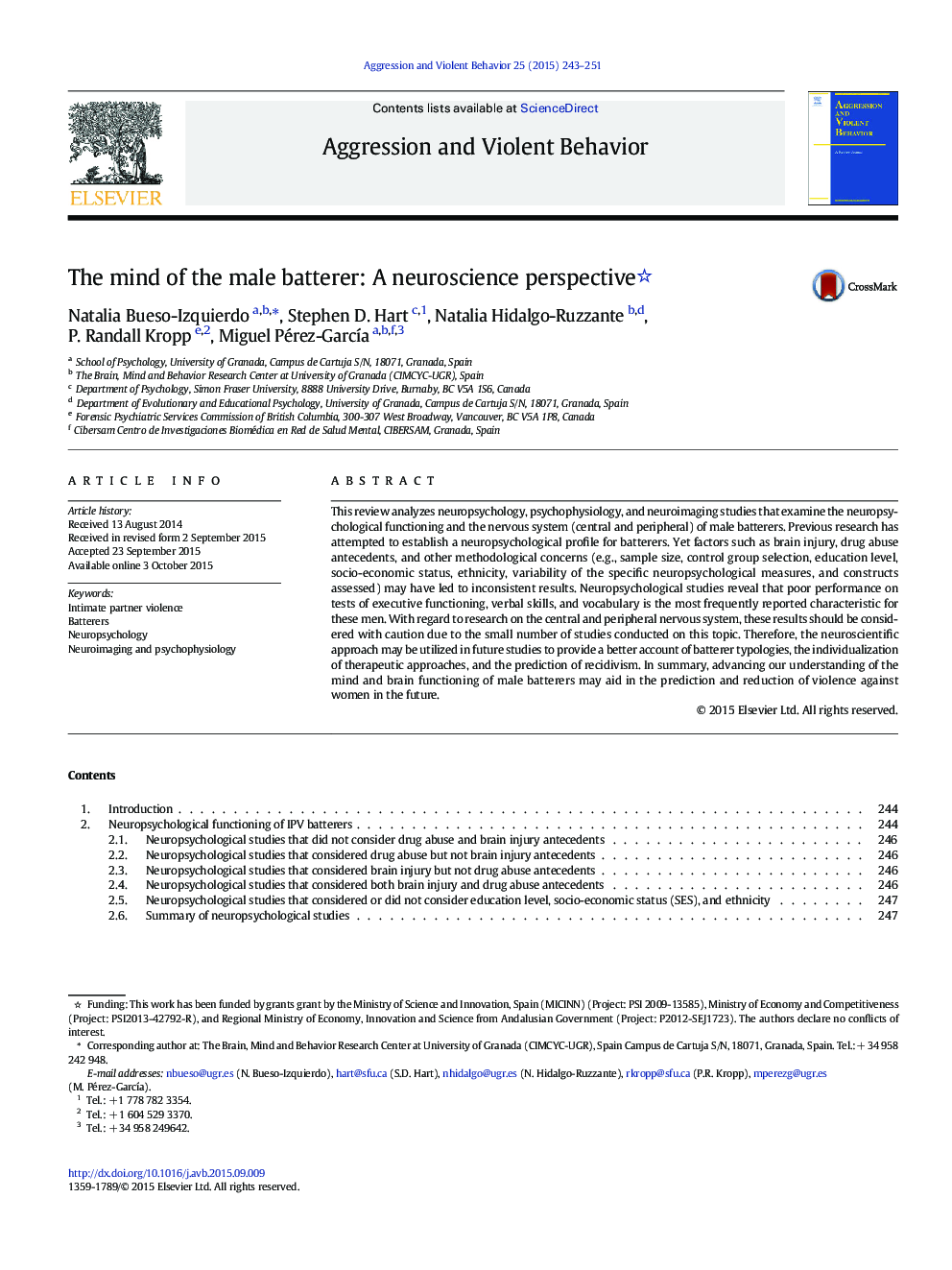| Article ID | Journal | Published Year | Pages | File Type |
|---|---|---|---|---|
| 94513 | Aggression and Violent Behavior | 2015 | 9 Pages |
This review analyzes neuropsychology, psychophysiology, and neuroimaging studies that examine the neuropsychological functioning and the nervous system (central and peripheral) of male batterers. Previous research has attempted to establish a neuropsychological profile for batterers. Yet factors such as brain injury, drug abuse antecedents, and other methodological concerns (e.g., sample size, control group selection, education level, socio-economic status, ethnicity, variability of the specific neuropsychological measures, and constructs assessed) may have led to inconsistent results. Neuropsychological studies reveal that poor performance on tests of executive functioning, verbal skills, and vocabulary is the most frequently reported characteristic for these men. With regard to research on the central and peripheral nervous system, these results should be considered with caution due to the small number of studies conducted on this topic. Therefore, the neuroscientific approach may be utilized in future studies to provide a better account of batterer typologies, the individualization of therapeutic approaches, and the prediction of recidivism. In summary, advancing our understanding of the mind and brain functioning of male batterers may aid in the prediction and reduction of violence against women in the future.
